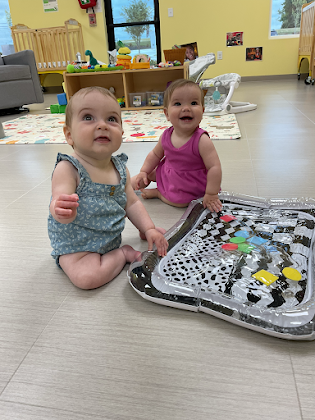Water play offers a wide range of developmental, sensory, and social benefits for children. Here are some of the key benefits of why we do what we do:
1. Physical Development
-
Fine motor skills: Pouring, squeezing, stirring, and using tools like cups or sponges strengthen hand and finger muscles.
-
Gross motor skills: Activities like splashing, lifting water containers, and running through sprinklers improve coordination and muscle strength.
2. Cognitive Development
-
Problem-solving: Children learn cause and effect (e.g., “If I pour this, it overflows”) and explore concepts like volume, flow, and measurement.
-
Scientific thinking: Water play introduces early science concepts such as sinking/floating, temperature, and states of matter.
-
Math skills: Measuring, comparing volumes, and counting objects during water play help develop early math understanding.
3. Sensory Exploration
-
Water play provides rich tactile experiences, especially when combined with other materials like sand, ice, or bubbles.
-
It can have a calming and regulating effect for children, especially those with sensory processing needs.
4. Language and Communication
-
Water play often encourages storytelling, descriptive language (“It’s slippery!” “The water is cold”), and new vocabulary related to actions and sensations.
-
Cooperative play fosters conversation and social negotiation.
5. Social and Emotional Development
-
Encourages cooperation and sharing when children play together.
-
Provides opportunities for creative expression, imagination, and pretend play.
-
Helps children build confidence and independence as they make choices and explore freely.
6. Creativity and Imagination
-
Water play often involves open-ended exploration, where there’s no “right” way to play, supporting creative thinking.
-
Children invent scenarios, stories, or experiments, boosting imaginative play.
7. Emotional Regulation
-
The soothing nature of water can reduce stress and help children self-regulate their emotions.
-
It offers a safe space for children to express feelings through play.
Summary:
Water play is not just fun—it’s a holistic developmental activity that supports a child’s growth across physical, cognitive, emotional, and social domains. Whether it’s a backyard sprinkler, a water table, or simply a sink with cups and toys, water play is a valuable part of early childhood development



